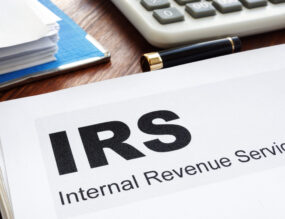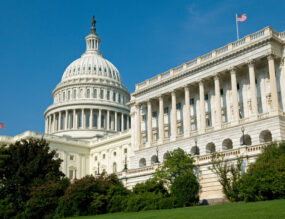
On July 4, President Trump signed into law the sweeping One Big Beautiful Bill Act (OBBBA). This bill is a landmark tax and spending package that makes key provisions from the 2017 Tax Cuts and Jobs Act (TCJA) permanent, introduces significant changes for businesses and individuals, and redefines international tax and clean energy policy.
With so many changes packed into one bill, understanding the immediate and long-term effects is essential. Below, we’ve outlined some of the most impactful provisions and what they could mean for you or your business.
Key Takeaways at a Glance
- TCJA extensions made permanent, including bonus depreciation and qualified business income deductions.
- Enhanced tax relief for businesses—particularly around interest deductions, research and development (R&D), and pass-through income.
- Significant international tax reforms, affecting global intangible low-tax income (GILT), foreign-derived intangible income (FDII) and foreign tax credits.
- Clean energy incentives scaled back, with phaseouts on many recent credits.
- Major changes for individuals, including updates to the state and local taxes (SALT) cap, standard deduction, and child tax credit.
- Estate exemption increased to $15 million ($30 million married filing jointly).
- New planning opportunities for qualified opportunity zones, small business stock, and charitable giving.
What the Tax Changes Mean for Individuals
Key updates for individuals include:
- SALT Cap Increased: The deduction is now $40,000, increasing 1% annually through 2029, with phase-outs for high earners, before reverting to $10,000 in 2030. Note that the pass-through entity tax (PTET) workaround remains available under OBBBA.
- Standard Deduction & Tax Rates Made Permanent: Increased for inflation, bringing stability to long-term planning. For tax years beginning after 2024, the standard deduction increases to $15,750 for single filers, $23,625 for heads of household, and $31,500 for married individuals filing jointly. The standard deduction will be adjusted for inflation after that. These changes have been made retroactive to include 2025. The bill generally makes the tax rates enacted in 2017 in the TCJA permanent.
- Personal exemptions and senior deduction: The Senate bill permanently sets the deduction for personal exemptions at zero. However, it provides a temporary $6,000 deduction under Sec. 151 for individual taxpayers who are age 65 or older. This senior deduction begins to phase out when a taxpayer’s modified adjusted gross income (MAGI) exceeds $75,000 ($150,000 in the case of a joint return). It will be in effect for the years 2025 through 2028.
- Child Tax Credit: The bill increases the amount of the nonrefundable child tax credit to $2,200 per child beginning in 2025 and indexes the credit amount for inflation. The bill also makes permanent the $1,400 refundable child tax credit, adjusted for inflation. It in addition makes permanent the increased income phaseout threshold amounts of $200,000 ($400,000 in the case of a joint return), as well as the $500 nonrefundable credit for each dependent of the taxpayer other than a qualifying child.
- Alternative minimum tax exemption: The bill permanently extends the TCJA’s increased individual alternative minimum tax (AMT) exemption amounts and reverts the exemption phaseout thresholds to their 2018 levels of $500,000 ($1 million in the case of a joint return), indexed for inflation. However, the bill increases the phaseout of the exemption amount from 25% to 50% of the amount by which the taxpayer’s alternative minimum taxable income exceeds the threshold amount.
- Mortgage interest deduction: The bill permanently extends the TCJA’s provision limiting the qualified residence interest deduction to the first $750,000 in home mortgage acquisition debt. It also makes permanent the exclusion of interest on home-equity indebtedness from the definition of qualified residence interest.
- Casualty loss deductions: Under the bill, the TCJA’s provision limiting the itemized deduction for personal casualty losses to losses resulting from federally declared disasters becomes permanent, but the bill expands the provision to include certain state-declared disasters.
- Moving expense deduction: The bill permanently eliminates the deduction for moving expenses, except for members of the armed forces and certain members of the intelligence community.
- Above-the-Line Deductions for Tips and Overtime: Temporary but potentially valuable for certain workers. The bill provides a temporary deduction of up to $25,000 for qualified tips received by an individual in an occupation that customarily and regularly receives tips. The bill also provides a deduction of up to $12,500 ($25,000 in the case of a joint return) for qualified overtime compensation received by an individual during a given tax year. The deduction begins to phase out when the taxpayer’s MAGI exceeds $150,000 ($300,000 in the case of a joint return).
- Car loan interest: For the years 2025 through 2028, the bill excludes qualified passenger vehicle loan interest from the definition of personal interest in Sec. 163(h). Qualified passenger vehicle loan interest is defined as interest paid or accrued during tax year on indebtedness incurred by the taxpayer after Dec. 31, 2024, for the purchase of, and that is secured by a first lien on, an applicable passenger vehicle for personal use. Among other restrictions, applicable passenger vehicles must have had their final assembly in the United States. The exclusion is capped at $10,000 per year and will phase out for taxpayers with MAGI in excess of $100,000 ($200,000 for married taxpayers filing jointly).
- New “Trump Accounts”: Trump accounts can be established for the exclusive benefit of individuals under 18. Contributions can only be made in calendar years before the beneficiary turns 18 and distributions can only be made starting in the calendar year the beneficiary turns 18. Under a pilot program, a $1,000 tax credit is provided for opening a Trump account for a child born between Jan. 1, 2025, and Dec. 31, 2028.
- Credit for contributions to scholarship-granting organizations: The bill enacts a new Sec. 25F that provides a credit of $1,700 for charitable contributions to scholarship-granting organizations.
- Sec. 529 plans: The bill allows tax-exempt distributions from Sec. 529 savings plans to be used for additional educational expenses in connection with enrollment or attendance at an elementary or secondary school. The bill also allows tax-exempt distributions from 529 savings plans to be used for additional qualified higher education expenses.
- Charitable contribution deduction: The bill creates a charitable contribution deduction for taxpayers who do not elect to itemize, allowing nonitemizers to claim a deduction of up to $1,000 for single filers or $2,000 for married taxpayers filing jointly for certain charitable contributions. This deduction begins after 2025.
- Charitable giving limits: For itemizers, the bill imposes a 0.5% floor on the charitable contribution deduction. The amount of an individual’s charitable contributions for a tax year is reduced by 0.5% of the taxpayer’s contribution base for the tax year.
Now is the time to revisit your personal tax and wealth strategy, especially if you own a business, anticipate large charitable contributions, or are considering estate planning moves.
Estate and Succession Planning Gets a Boost
- Estate/Gift Tax Exemption Raised to $15 Million per individual and $30 Million for married filing jointly in 2026 and the amounts are indexed for inflation after that.
- Qualified small business stock: The bill increases the exclusion for gain from qualified small business stock. For qualified small business stock acquired after the date of enactment of the bill and held for at least four years, the percentage of gain excluded from gross income will rise from 50% to 75%. If it is held for five years or more, the exclusion percentage will go up to 100%.
Business owners and high-net-worth individuals should explore tax-efficient succession planning and legacy giving strategies with their advisors.
What Businesses Need to Know Now
If you own or manage a business, several provisions in the OBBBA could immediately reduce tax liabilities and improve cash flow:
- 100% Bonus Depreciation Returns: Businesses can again fully expense qualified assets in the year they’re placed in service, beginning after Jan. 19, 2025.
- Sec. 179 expensing: The bill increases the maximum amount a taxpayer may expense under Sec. 179 to $2.5 million, reduced by the amount by which the cost of qualifying property exceeds $4 million.
- Special depreciation allowance for qualified production property: The bill allows an additional first-year depreciation deduction equal to 100% of the adjusted basis of “qualified production property.” Qualified production property is generally nonresidential real property used in manufacturing.
- Advanced manufacturing investment credit: Under the bill, the advanced manufacturing investment credit rate increases from 25% to 35%, effective for property placed in service after Dec. 31, 2025
- Business Interest Limitation: Reverts to the more generous earnings before interest, taxes, depreciation, and amortization (EBITDA)-based limitation calculation.
- R&D Expensing: The bill allows taxpayers to immediately deduct domestic research or experimental expenditures paid or incurred in tax years beginning after Dec. 31, 2024. However, R&D expenditures attributable to research conducted outside the United States will continue to be required to be capitalized and amortized over 15 years. Small business taxpayers (average annual gross receipts under $31 million) can apply retroactively to 2022, and all taxpayers will be permitted to accelerate previously capitalized amounts from 2022–2024 over a one or two year period.
- Qualified Business Income Deduction (199A): The bill makes the Sec. 199A qualified business income (QBI) deduction permanent and keeps the deduction rate at 20%. The bill expands the Sec. 199A deduction limit phase-in range for SSTBs and other entities subject to the wage and investment limitation by increasing the $50,000 amount for non-joint returns to $75,000 and the $100,000 amount for joint returns to $150,000.
- Paid family and medical leave credit: The employer credit for paid family and medical leave is permanent.
- Employer-provided child care credit: The bill increases the amount of qualified child care expenses from 25% to 40%. The maximum amount of the credit increases from $150,000 to $500,000 ($600,000 for eligible small businesses) and will be adjusted for inflation.
- Opportunity zones: The bill makes opportunity zones permanent but with several changes, including narrowing the definition of “low-income community.” The changes would generally take effect Jan. 1, 2027.
- Charitable Giving Limits: A new 1% floor for corporations means only contributions above 1% of taxable income are deductible, and the charitable contribution deduction cannot exceed the current 10%-of-taxable-income limit.
- Form 1099 reporting threshold: The bill increases the information-reporting threshold for certain payments to persons engaged in a trade or business and payments of remuneration for services to $2,000 in a calendar year (from $600), with the threshold amount to be indexed annually for inflation in calendar years after 2026.
Businesses should re-evaluate capital expenditures, R&D planning, and entity structure decisions in light of these changes.
Global Tax Rules See Major Overhaul
OBBBA overhauls the U.S. approach to international taxation:
- GILTI and FDII : The bill decreases the deduction percentage for tax years beginning after Dec. 31, 2025, to 33.34% for FDII and 40% for GILTI, resulting in an effective tax rate of 14% for both FDII and GILTI. The bill also proposes changing the definition of deduction-eligible income for purposes of determining FDII. The bill also eliminates the use of a corporation’s deemed tangible income return for determining FDII and the use of net deemed tangible income return in determining GILTI. These changes result in the elimination of the terms FDII and GILTI, which will be renamed “foreign-derived deduction eligible income” and “net CFC tested income,” respectively.
- Foreign Tax Credits: Significant changes to how FTCs are calculated and sourced.
- BEAT Changes: The bill increases the base-erosion and anti-abuse tax (BEAT) rate from 10% to 10.5%
- Restoration of Prohibition on Downward Attribution: Impacts CFC status and reporting obligations for many multinational structures that were affected by TCJA.
If your business has a global footprint, coordinate with your tax advisor soon to determine how these changes affect your effective global tax rate and compliance burden.
Major Clean Energy & Sustainability Credits Winding Down
The OBBBA substantially scales back clean energy incentives introduced by the Inflation Reduction Act (IRA):
EV, Solar, Wind, and Home Energy Credits are scheduled to terminate between 2025–2027. Under the bill, the affected credits include the following:
- Previously owned clean vehicle credit;
- Clean vehicle credit;
- Qualified commercial clean vehicle credit;
- Alternative fuel refueling property credit;
- Energy efficient home improvement credit;
- Residential clean energy credit; and
- New energy efficient home credit.
Hydrogen and Carbon Capture Credits are narrowed, with stricter qualification rules.
Consider fast-tracking clean energy investments and projects to ensure eligibility before key expiration dates.
What Should You Do Next?
The OBBBA introduces both immediate and long-term changes. Many businesses could see reduced estimated tax payments as soon as the third quarter of 2025. However, the greater opportunity lies in strategically aligning your tax, business, and wealth plans to take full advantage of these sweeping reforms.
We recommend:
- Meeting with your Abeles and Hoffman tax advisor soon to understand how the OBBBA affects your unique situation.
- Reviewing your 2025 tax projection in light of the changes.
- Revisiting long-term planning goals, including expansion, R&D, charitable giving, and estate transfers.
Questions? We’re Here to Help.
Whether you’re navigating new compliance requirements or rethinking your business strategy, our team is ready to guide you through the opportunities and implications of the One Big Beautiful Bill Act. We are eager to help you make the most of your tax situation, so please contact our office to schedule a consultation to discuss your questions and concerns.
Sincerely,

Abeles and Hoffman, P.C.





